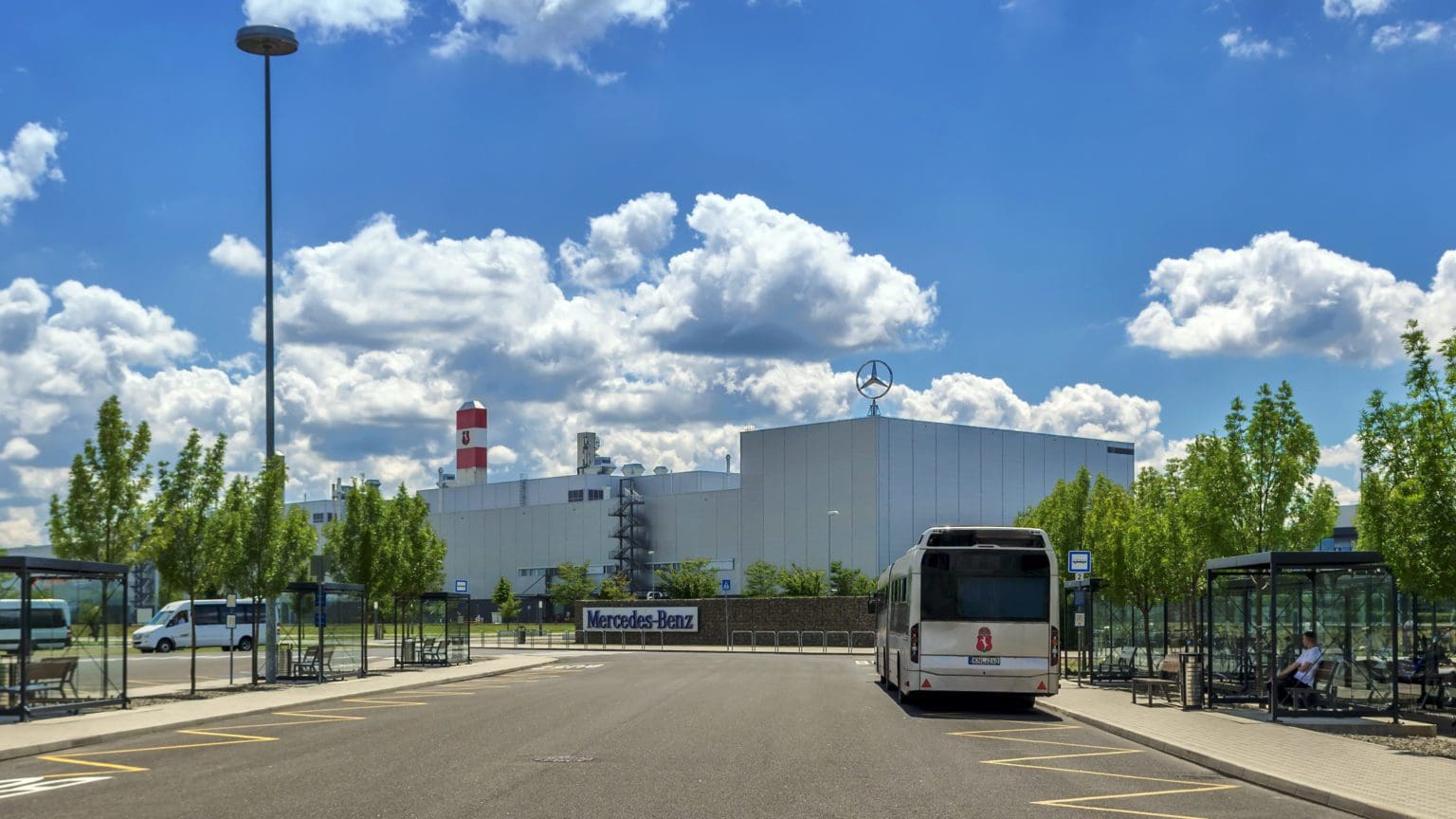On 21 July in Kecskemét Minister of Foreign Affairs Péter Szijjártó announced a HUF 400 billion investment, the largest in Hungary in 2022. Mercedes-Benz is expanding its factory in the central-Hungarian city, which will allow the facility to produce electric vehicles as well as new model luxury cars. As the global automotive industry increasingly shifts towards using green technologies, it is crucially important for Hungary to win investments that enhance the competitiveness of Hungarian automobile manufacturing by introducing production lines for electric vehicles, Mr. Szijjártó highlighted. The Mercedes-Benz investment demonstrates that Hungary is able to accommodate itself for the green transition, and the country is ready to provide the necessary expertise to support the production of electric SUVs, the minister stressed.
The investment will further the shift towards electric and luxury vehicles, which Mercedes-Benz has outlined as its new mission for the coming years. In line with the company’s new vision, the first fully electric vehicle that was produced in Hungary was made at the factory in Kecskemét in October last year. The investment and the introduction of fully electric vehicles to the Kecskemét facility mark a change in the company’s objectives which includes increasing the penetration of markets outside Europe. The shift in Mercedes-Benz’s focus comes as a reaction to the challenges the pandemic has revealed for the automotive industry. Similarly to other companies in the industry, Mercedes-Benz has also gone through a rough period – during the COVID-19 pandemic output fell at the Kecskemét factory as well. In 2021, 25 thousand fewer automobiles were produced than in the preceding year. With production falling, revenues also shrank. While in 2020 Mercedes-Benz Hungary recorded EUR 3.4 billion in revenues, in 2021 revenues fell to EUR 1.1 billion, equalling a decrease of 9.3 per cent. With the model change and the new major investment, the production facility in Kecskemét is expected to re-embark on a favourable growth path. By 2030, Mercedes-Benz is to go all-electric; and the factory in Kecskemét is to start producing new models in the top end luxury, core luxury and entry luxury segments from the middle of the decade.
The expansion and the new training programmes are major successes for Hungary
As the investment will create new workplaces and it also develops regional infrastructure, the Hungarian government vowed to support the expansion with HUF 14 billion. To equip workers with the necessary skills for the new production lines that are now being developed for the Mercedes-Benz Manufacturing Hungary Kft., the company also launched a government-subsidised training programme. The expansion and the new training programmes are major successes for Hungary, as they help boost the country’s competitiveness, and they also contribute to Hungary’s recovery from the pandemic- and war-induced economic shocks.
The Hungarian automotive industry is a very large and important sector for Hungary. The sector has been steadily growing over the last couple of years, with both Mercedes-Benz and the Volkswagen Group announcing major investments in the country. The production value of the whole Hungarian automotive industry has increased from HUF 3 600 billion in 2010 to HUF 9 400 billion in 2021. This year has been a very successful one for the industry in Hungary so far, as total output reached a record HUF 4 500 billion in the first five months of 2022. The industry employs 155 thousand Hungarian workers and produces a large share of the Hungarian GDP. Over 90 per cent of the industry’s production is for export, which makes Hungary one of the 20 largest (per capita) car exporters in the world. Only Hungary, Germany and China have production capacities for all the three major German premium car brands. Hungary has the third largest production capacity of electric batteries in the world, while it ranks fifth globally in the volume of exported electric batteries.
Whether the dependency on the automotive industry and German dominance of it constitute a case of healthy reliance or a potential risk for the Hungarian economy is a complex issue that we have written about here.








